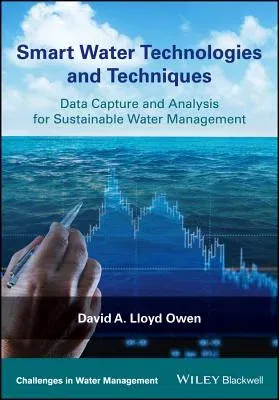An Insightful Examination of Smart Water Systems and Technology
Inland water supplies are under increasing pressure. Climate, social,
and demographic change have begun tipping the balance toward demand
management, as supplies begins to dwindle. Water and wastewater
infrastructure will play a central role in the management of this
increasingly valuable resource, and Smart Water Technologies and
Techniques: Data Capture and Analysis for Sustainable Water Management
provides insight on a key part of the solution.
Smart water applications optimise the way water and wastewater services
are used, allowing more efficient allocation of limited resources while
adding flexibility to the system. Automation, real-time data capture,
and rapid interpretation allow utilities and users to monitor, manage,
and act on the part of the water cycle that matters to them, minimizing
costs of providing service through optimal use of extant assets.
This book brings together the core principles, key developments, and
current state-of-the-art into a single resource that:
- Considers smart water within operational, economic, policy, and
regulatory contexts
- Provides a comprehensive overview of the smart water concept and the
latest advances in the field
- Examines key considerations and objections raised to date
- Discusses the potential value of smart water, from perception to
policy
- Shows how smart water systems can optimize efficiency and flexibility
of water and wastewater management
- Explores future directions for smart water development in the pursuit
of balanced supply and demand
Although primarily designed for water supply and sanitation, smart water
systems may be applied to irrigation, reservoir and dam management,
inland water flows, and more, making it a valuable asset as water
scarcity begins to spread around the globe. This book answers the
questions, assuages concerns, and explains the technology that could
revolutionize the way water is accessed and supplied.

